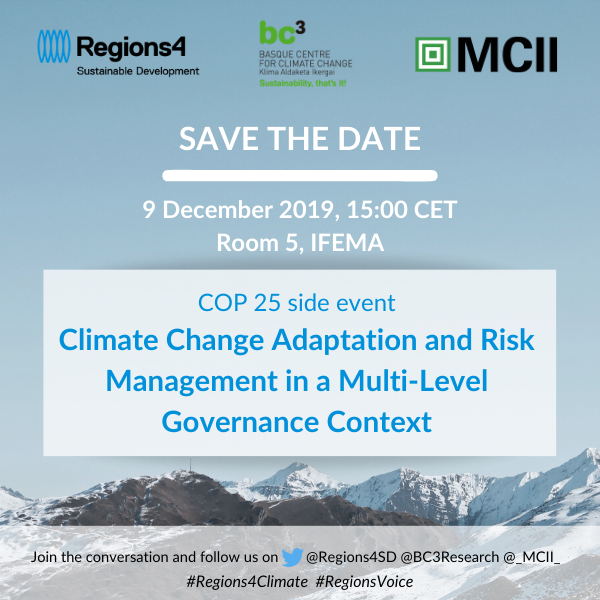November 19, 2019
Published by BC3Research at November 19, 2019
Categories
Different lines of evidence suggest that divergence in plasticity plays a key role in adaptation to global environmental change. Many scientists argue that genetic variation in plastic responses to the environment (G × E) could be an important predictor of species' vulnerabilities to climate change. But there is not a general pattern among either experimental or theoretical studies. Plasticity acting at the level of the individual is considered a rapid mechanism for surviving under rapidly changing conditions. But plasticity can also retard adaptation by shifting the distribution of phenotypes in the population, shielding it from natural selection. We know that not all plastic responses are adaptive. I will illustrate some examples of ecological traps, and, for the case of plants, the paradoxical decision regarding roots that we are far from understanding and modelling. Plasticity may buy time for populations, but whether it will be enough, given the rate of environmental change, is unknown.
Do you like it?
November 21, 2019
Published by BC3Research at November 21, 2019
Categories
BC3, the Basque Centre for Climate Change, as Maria de Maeztu Unit, is a host organization of INPhINIT and offers up to 6 research projects to be carried out in a multidisciplinary and international research team. The doctoral fellowship programme INPhINIT ”la Caixa” is devoted to attracting talented Early-Stage Researchers—of any nationality—who wish to pursue doctoral studies in Spanish or Portuguese territory. Sponsored by ”la Caixa” Foundation, it is aimed at supporting the best scientific talent and fostering innovative and high-quality research in Spain and Portugal by recruiting outstanding international students and offering them an attractive and competitive environment for conducting research of excellence.
December 4, 2019
Published by BC3Research at December 4, 2019
Categories
The objective of the event panel is to discuss about the role of ruminants livestock systems on delivering low-carbon pathways, taking into account the different world contexts. This panel will bring together and discuss different new scientific/technical information to enhance the societal understanding of the real challenges and opportunities that grass-fed livestock systems (ruminants) have in the face of climate change mitigation. Participants will have an opportunity to also gather new evidence that updates current GHG estimates for ruminants (based on IPCC methodologies), explores new GHG reference baselines and the link of different emissions pathways with future global warming, while disscusion on how society percives the issue of livestock contribution to climate change through the eyes of an enviroemental journalist.
Do you like it?
December 4, 2019
Published by BC3Research at December 4, 2019
Categories
In the framework of the COP25, this side event will discuss the topics of climate change adaptation and disaster risk financing as a multi-level governance challenge. Organised by Regions4 Sustainable Development, in collaboration with the Basque Centre for Climate Change (BC3) and the Munich Climate Insurance Initiative (MCII), it will highlight good practices and experiences from different levels of government. It will further reveal common challenges and provide recommendations for policymakers that could guide the development and implementation of national, regional and local adaptation plans and strategies.
Do you like it?




